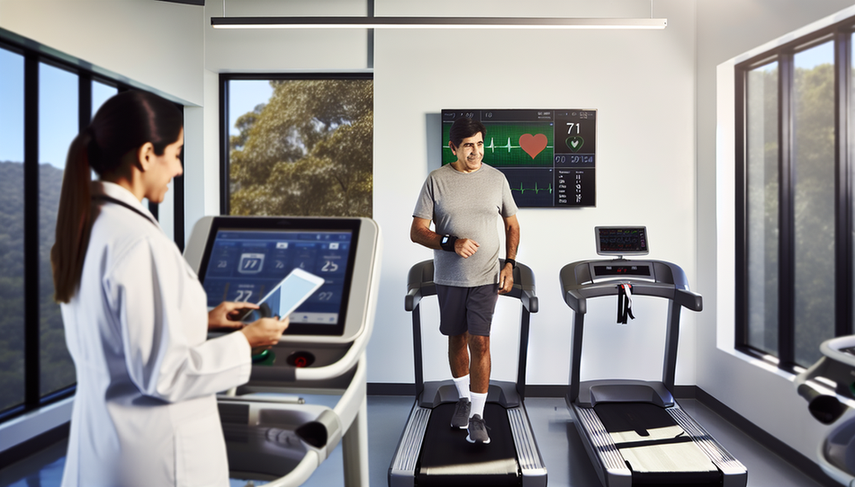Personalized Cardiac Rehabilitation with AI: Continuous Monitoring and Improved Clinical Outcomes

Cardiac rehabilitation has evolved significantly in recent years, integrating advanced technologies that enable personalized follow-up and continuous monitoring of patients. Artificial intelligence (AI) has become a crucial tool in this field, facilitating the improvement of clinical outcomes through the customization of rehabilitation programs. This approach not only optimizes treatment but also empowers patients by providing them with more precise control over their health.
Diving Deeper into Cardiac Rehabilitation with AI
The implementation of AI in cardiac rehabilitation allows for continuous and detailed monitoring of patients, which is essential for tailoring rehabilitation programs to individual needs. According to a recent study, AI facilitates the early detection of cardiac events and the personalization of rehabilitation programs, resulting in more effective management of cardiac health [1]. Furthermore, the availability of large datasets (big data) enables the prediction of the development and outcomes of various cardiovascular diseases, thereby improving treatment accuracy [2].
The use of wearable devices and mobile applications has revolutionized the monitoring of cardiac rehabilitation, allowing for continuous analysis of vital signs and promoting lifestyle modifications, which are crucial for maintaining cardiac health [1]. However, it is essential to address challenges such as digital literacy, data privacy, and security to ensure an inclusive and equitable implementation of these technologies.
Conclusions
The integration of AI in physiotherapy and cardiac rehabilitation represents a significant advancement towards personalized medicine. As these technologies continue to develop, it is crucial for healthcare professionals to stay updated on the latest innovations to maximize benefits for patients. The personalization of treatment, facilitated by AI, not only improves clinical outcomes but also strengthens the doctor-patient relationship by providing a more individualized approach.
Referencias
- [1] Comprehensive and personalized approach is a critical area for developing remote cardiac rehabilitation programs.
- [2] Artificial Intelligence as a Business Partner in Cardiovascular Precision Medicine: An Emerging Approach for Disease Detection and Treatment Optimization.
Created 20/1/2025
